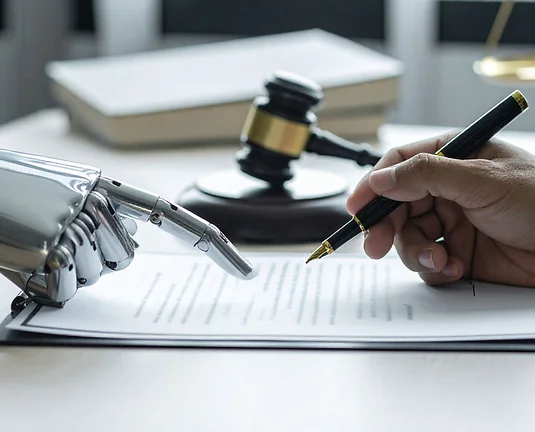Governor Whitmer Signs Extension of Unemployment Benefits into Law and Other COVID-19-Related Legislation
 On October 20, 2020, Governor Whitmer signed into law an extension of unemployment benefits from 20 weeks to 26 weeks, which makes expanded benefits for Michigan workers available through December 31, 2020. Several other COVID-19-related bills which were recently passed by the Michigan legislature and signed by the governor on October 22 include:
On October 20, 2020, Governor Whitmer signed into law an extension of unemployment benefits from 20 weeks to 26 weeks, which makes expanded benefits for Michigan workers available through December 31, 2020. Several other COVID-19-related bills which were recently passed by the Michigan legislature and signed by the governor on October 22 include:
- House Bill 6032: Protecting employees who have or may have contracted COVID-19 from discipline, discharge or retaliation for failing to report to work
- House Bill 6031: Shielding employers from MIOSHA liability for an employee’s exposure to COVID-19
- House Bill 6030: Protecting businesses and other entities from COVID-19-related claims
The new legislation was passed in response to the Michigan Supreme Court’s decision that the governor lacked the authority after April 30, 2020, to issue or renew any executive orders related to the COVID-19 pandemic.
Extension of Unemployment Benefits
Public Act No. 229 includes many provisions of Governor Whitmer’s Executive Order 2020-76 related to the extension of unemployment benefits, which was invalidated by the Michigan Supreme Court’s ruling earlier this month. The newly enacted law:
- Extends the maximum unemployment benefit period from 20 weeks to 26 weeks
- Specifies that for each eligible individual filing an initial claim because of COVID- 19 not more than 26 weeks of benefits or less than 14 weeks of benefits would be payable to an individual in a benefit year
- Specifies that certain eligibility requirements for an individual to receive benefits would not apply if COVID-19 would prevent the individual from meeting the requirements
- Requires benefits to be charged to the non-chargeable account when a worker is laid off due to COVID-19
- Permits employers to use the work-share program even if an employer is not normally eligible
- Allows workers to receive benefits during time off work due to a COVID-19-related cause
Unlike Executive Order 2020-76, the legislation does not waive the requirement for people who were laid off to actively seek work except under certain circumstances. The requirement to seek work may be waived by the Unemployment Insurance Agency if a layoff is temporary. Specifically, “if the individual is laid off and the employer who laid the individual off notifies the unemployment agency in writing or by computerized data exchange that the layoff is temporary and that work is expected to be available for the individual within a declared number of days, not to exceed 45 calendar days following the last day the individual worked.”
In addition, the requirement to seek work may be waived if, except for a period of disqualification, the Unemployment Insurance Agency “finds that suitable work is unavailable both in the locality where the individual resides and in those localities in which the individual has earned wages during or after the base period.” Such waiver does not apply to a claimant enrolled and attending classes as a full-time student.
The new law also differs from Executive Order 2020-76 in that the Unemployment Insurance Agency must review all jobs held by a claimant during the preceding 18 months, not only the most recent job, before determining eligibility. To the extent a person voluntarily left a job for another job in the last 18 months, and was laid off from the new job, they will be ineligible for regular benefits.
Non-Retaliation Against Employees
Pursuant to Michigan House Bill 6032, which generally tracks Governor Whitmer’s Executive Order 2020-172, employers are prohibited from disciplining, discharging, or retaliating against employees for COVID-19-related reasons. In particular, an employee cannot be disciplined, discharged, or retaliated against to the extent the employee:
- Fails to report to work because the employee tests positive for COVID-19, displays symptoms of COVID-19, or comes into close contact with someone who tests positive or displays symptoms of COVID-19;
- Opposes a violation of House Bill 6032; or
- Reports health violations related to COVID-19.
These prohibitions do not apply with respect to an employee who, after displaying the principal symptoms of COVID-19, fails to make reasonable efforts to schedule a COVID-19 test within three days after receiving a request from their employer to get tested for COVID-19.
The bill also provides that, except in the case of certain exempt workers, such as healthcare professionals and first responders, employees who test positive for COVID-19 or display symptoms of COVID-19 are prohibited from returning to work until certain conditions, enumerated in the bill, are met.
An employee aggrieved by a violation of this act may bring a civil action for appropriate injunctive relief or damages, or both. A plaintiff who prevails in such an action is entitled to damages of not less than $5,000.
Immunity from MIOSHA Liability
House Bill 6031 shields employers from Michigan Occupational Safety and Health Administration liability for an employee's exposure to COVID-19 if the employer was operating in compliance with all federal, state, and local statutes, rules, and regulations, executive orders, and agency orders related to COVID-19 that had not been denied legal effect at the time of the exposure. The legislation provides immunity to businesses for de minimis deviations from COVID-19-related statutes, rules, regulations, executive orders, and agency orders unrelated to the employee’s exposure to COVID-19. The bill applies retroactively to an exposure to COVID-19 that occurred after March 1, 2020.
Immunity from COVID-19 Lawsuits
House Bill 6030 provides that: “A person who acts in compliance with all federal, state, and local statutes, rules, regulations, executive orders, and agency orders related to COVID-19 that had not been denied legal effect at the time of the conduct or risk that allegedly caused harm is immune from liability for a COVID-19 claim.”
A “person” is defined as “an individual, partnership, corporation, association, governmental entity, or other legal entity, including, but not limited to, a school, a college or university, an institution of higher education, and a nonprofit charitable organization. Person includes an employee, agent, or independent contractor of the person, regardless of whether the individual is paid or an unpaid volunteer.”
A COVID-19 claim includes “a tort claim or tort cause of action for damages, losses, indemnification, contribution, or other relief arising out of, based on, or in any way related to exposure or potential exposure to COVID-19, or to conduct intended to reduce transmission of COVID-19.” House Bill 6030 contains the same de minimis deviation exclusion as House Bill 6031, and also applies retroactively to an exposure to COVID-19 that occurred after March 1, 2020.
Stay on Top of the Latest Developments
Since the Michigan Supreme Court decision on Governor Whitmer’s authority to issue COVID-19-related executive orders, there has been a flurry of rulemaking and legislative updates that impact businesses and individuals in Michigan. If you have any questions regarding these legal and regulatory issues, please contact a Foster Swift labor & employment law attorney. We will continue to keep you apprised of further developments.
Lawsuits Seek to Limit New COVID-19 Mandates
Following the Michigan Supreme Court’s decision to invalidate certain COVID-19 executive orders, the Director of the Michigan Department of Health and Human Services (“MDHHS”) issued emergency orders addressing COVID-19. The emergency orders, which are now being challenged in the courts, include mask mandates and restrictions on gathering.
- On October 16, 2020, Libertas Classical Association (a Christian school) filed suit in the U.S. District Court for the Western District of Michigan, alleging its constitutional rights were violated when the county health department threatened to shut the school because of violations of the state's mask mandate and gathering restrictions.
- On October 21, 2020, a Grand Haven chiropractor's office filed suit against the state in the Michigan Court of Claims. The plaintiff argues that certain of the MDHHS’s mandates exceeded its legal authority.
We will continue to keep you apprised of developments in these newly filed cases which may help further define, and potentially limit, the power of the state’s executive branch to issue COVID-19 orders without legislative input and approval.
- Mike Blum (Southfield) | 248.785.4722 | mblum@fosterswift.com
- Karl Butterer (Grand Rapids) | 616.726.2212 | kbutterer@fosterswift.com
- Cliff Hammond (Lansing) | 248.538.6324 | chammond@fosterswift.com




